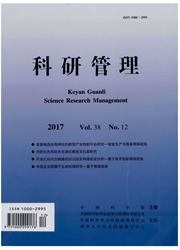

 中文摘要:
中文摘要:
近年来,以中国为代表的新兴国家成为推动发展中国家对外直接投资(OutwardFDI,OFDI)浪潮的主要来源国。本文首先在资源基础观的基础上构建适合新兴国家跨国公司对外直接投资战略动机的理论框架,将对外直接投资的动机划分为资源强化型、资源补充型和资源开发型三类;接着从东道国区位拉动因素着手构建假设,通过逆向推理的方法探索中国企业OFDI的战略动机。运用面板数据模型,对1998—2008年间中国在53个经济体的OFDI活动进行实证研究。结果表明:中国企业对外直接投资的战略动机主要是资源强化型和资源补充型投资。投资动机随时间和国内政策的影响而发生变化,呈现出依次多元化的特点,并因东道国区位优势的不同而异。本研究不但有利于研究中国企业OFDI的成因,而且为新兴国家对外直接投资战略的一般规律性研究提供参考。
 英文摘要:
英文摘要:
China' s Outward Foreign Direct Investment (OFDI) has experienced dramatic soaring in recent years, becoming the main FDI sourcing country which contributes to the flourishing of developing countries' OFDI. First, the paper attempts to modify the motives or strategies framework suitable to emerging countries based on Resource - based View ( RBV), and classifies the motives into three types, namely resource - intensifying, resource - complementing and resource - developing. Then based on the hypotheses from pull factors of host countries, the paper explores the strategic motives of China' s OFDI by reverse deduction. U- sing the panel data from 53 Chinese OFDI destinations during 1998 -2008, it is found out thatChina' s OFDI is mostly resource - intensifying and complementing type of motives, which have taken on the characteristics of sequentially diversified progress and varied with different host countries. The results from China can not only help explain the reasons forChinese OFDI, but also pro- vide reference for the general motive studies on emerging countries' OFDI.
 同期刊论文项目
同期刊论文项目
 同项目期刊论文
同项目期刊论文
 期刊信息
期刊信息
